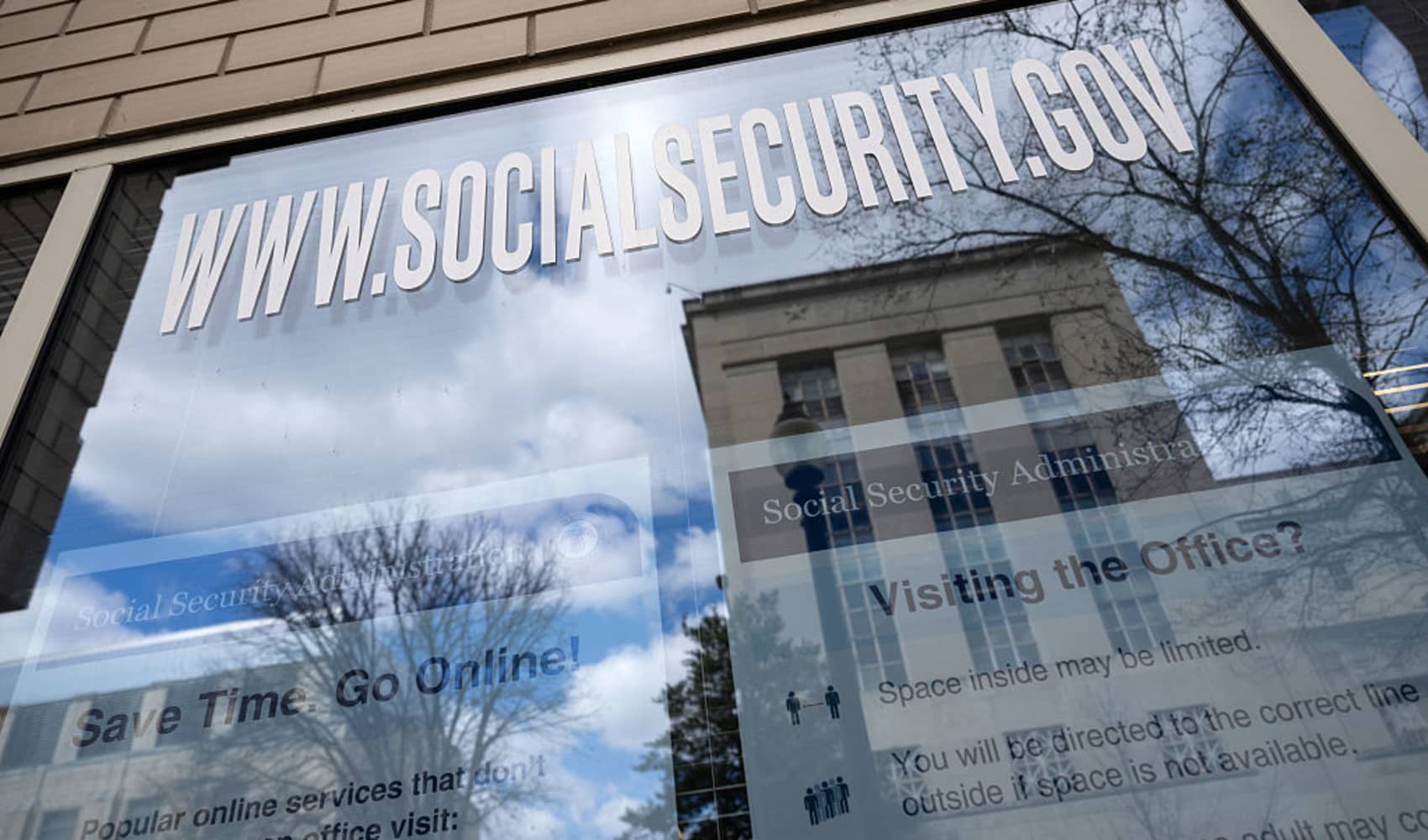Social Security Changes: What Beneficiaries Must Watch
Social Security Under New Management: What You Need to Know Now
A New Chapter for Social Security: An Introduction
The Social Security Administration (SSA), a cornerstone of financial security for millions of Americans, has a new captain at the helm. Frank Bisignano, formerly CEO of Fiserv, has officially taken over as commissioner. But what does this mean for you, the beneficiary? It's a question on many minds, and rightly so. This transition could bring significant shifts in how Social Security operates, impacting everything from benefit payments to customer service.
The Changing Landscape: A Shift in Priorities?
Bisignano’s appointment comes after the Trump administration's initial period, a time marked by various efficiency initiatives and adjustments within federal agencies. Are these changes positive? Will they streamline services? Or will they present new challenges for beneficiaries? It’s crucial to stay informed, and that's precisely what this article aims to provide.
Who's Affected? 73 Million and Counting
The changes at the SSA directly affect approximately 73 million Americans who rely on Social Security benefits each month. That's a massive number of people who deserve clarity and transparency regarding their entitlements. Whether you're a retiree, a disabled worker, or a survivor receiving benefits, understanding these potential shifts is paramount.
Understanding the Impact: Key Changes to Watch
So, what exactly should beneficiaries be watching for? Here are some critical areas where changes might occur:
H3: Benefit Payment Processing
One crucial area to monitor is the processing of benefit payments. Will there be any delays in receiving your monthly checks? Will direct deposit continue to be the preferred method of payment? These are fundamental questions that need answers.
H3: Changes to Eligibility Requirements
Could there be adjustments to the eligibility criteria for different types of Social Security benefits? While major overhauls are unlikely in the short term, subtle modifications could affect who qualifies and when. Be vigilant about any proposed changes to work credits, age requirements, or disability definitions.
Navigating Online Services: A Digital Transformation?
The SSA has been increasingly focusing on online services. Will this trend continue under new leadership? And, more importantly, will these online services be user-friendly and accessible to everyone, including those with limited technological skills? A seamless online experience is vital in today's digital age.
H3: My Social Security Account Enhancements
Look for potential improvements (or even setbacks) to the "My Social Security" online portal. Will there be new features added? Will the website become more secure? The convenience and security of your online account are critical.
The Future of Customer Service: Will It Improve?
Let's face it: navigating the Social Security system can be a bureaucratic maze. Will the new leadership prioritize improving customer service? Shorter wait times on the phone, more helpful representatives, and clearer communication are all crucial improvements that beneficiaries desperately need.
H3: Local Office Accessibility
Will local Social Security offices remain open and accessible? Or will there be further consolidation and closures? Physical access to local offices is essential for those who prefer in-person assistance.
The Cost-of-Living Adjustment (COLA): Protecting Your Purchasing Power
The annual Cost-of-Living Adjustment (COLA) is designed to protect beneficiaries from inflation. Will the formula used to calculate COLA remain the same? Or could there be changes that affect how much your benefits increase each year?
Understanding the Fine Print: Policy Changes and Regulations
Pay close attention to any proposed changes to Social Security policies and regulations. These changes, even if seemingly minor, can have a significant impact on your benefits. Stay informed about any rule changes related to work, earnings, or residency requirements.
The Impact on Disability Benefits: Protecting Those in Need
Social Security Disability Insurance (SSDI) and Supplemental Security Income (SSI) are vital safety nets for individuals with disabilities. Will the new leadership maintain or strengthen these programs? Watch for any changes to the medical eligibility criteria or the application process.
H3: Expedited Disability Claims Processing
Will there be improvements in the speed and efficiency of processing disability claims? The current backlog of cases can leave individuals waiting months, even years, for a decision. Any efforts to expedite the process would be a welcome relief.
Financial Planning: Adapting to Potential Changes
Social Security is just one piece of the retirement puzzle. How should you adjust your financial plans in light of potential changes to the program? Consider consulting with a financial advisor to ensure that your retirement savings are sufficient to meet your needs.
Staying Informed: Resources and Tools
The Social Security Administration website (ssa.gov) is your primary resource for information about benefits, policies, and regulations. However, it can be overwhelming. Consider subscribing to newsletters, following reputable news sources, and joining online forums to stay up-to-date.
H3: Navigating the SSA Website
Take some time to familiarize yourself with the Social Security Administration website. Learn how to navigate the different sections, find answers to common questions, and access online tools and resources.
Advocacy: Making Your Voice Heard
If you have concerns about potential changes to Social Security, don't hesitate to contact your elected officials. Let them know how these changes could affect you and your family. Your voice matters, and it's important to make it heard.
The Future of Social Security: A Collaborative Approach
Ultimately, the future of Social Security depends on a collaborative approach involving policymakers, experts, and the public. Open and honest dialogue is essential to ensure that the program remains sustainable and continues to provide vital benefits for generations to come.
The Role of Technology: Embracing Innovation
Technology can play a significant role in modernizing and improving the Social Security system. Will the new leadership embrace innovative technologies to streamline processes, enhance customer service, and combat fraud? The possibilities are endless.
Conclusion: Staying Vigilant and Informed
The appointment of a new commissioner at the Social Security Administration signals a period of potential change. While the exact nature and extent of these changes remain to be seen, it's crucial for beneficiaries to stay vigilant and informed. By understanding the key areas where shifts might occur, monitoring policy changes, and advocating for their interests, beneficiaries can protect their entitlements and ensure that Social Security continues to provide the vital support they need.
Frequently Asked Questions (FAQs)
Here are some frequently asked questions about the changes at the Social Security Administration:
Q: Will my Social Security benefits be reduced under the new leadership?
A: While there are no current plans to reduce benefits, it is always wise to monitor policy changes. Focus on staying informed about any proposed legislation that could affect your payments.
Q: How can I access my Social Security statement online?
A: You can access your Social Security statement by creating a "My Social Security" account on the SSA website (ssa.gov). This will allow you to view your earnings record, estimate future benefits, and manage your information online.
Q: What should I do if I experience a delay in receiving my Social Security check?
A: If you experience a delay in receiving your check, contact the Social Security Administration immediately. You can call their toll-free number or visit your local Social Security office for assistance.
Q: Are there any resources available to help me understand the Social Security system?
A: Yes, the Social Security Administration offers a variety of resources to help you understand the system, including publications, online tools, and educational materials. You can also consult with a financial advisor or seek assistance from advocacy groups.
Q: How can I report fraud or abuse related to Social Security benefits?
A: You can report fraud or abuse related to Social Security benefits by contacting the Social Security Administration's Office of the Inspector General (OIG). You can file a report online or call their hotline.

